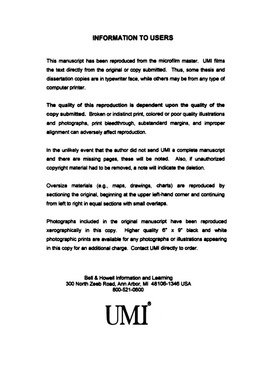| dc.contributor.advisor | Beach, Sara Ann, | en_US |
| dc.contributor.author | Coursey, Linda Lofaro. | en_US |
| dc.date.accessioned | 2013-08-16T12:30:58Z | |
| dc.date.available | 2013-08-16T12:30:58Z | |
| dc.date.issued | 2000 | en_US |
| dc.identifier.uri | https://hdl.handle.net/11244/5998 | |
| dc.description.abstract | This study illustrates a range of beliefs about literacy and literacy learning. Schools who would make use of these volunteers need to be aware that when they ask an untrained volunteer to complement classroom instruction that there is this range of beliefs. This range of beliefs may be manifested in a variety of ways during tutoring sessions. | en_US |
| dc.description.abstract | This study described the literacy beliefs of six work-study tutors. In order to investigate the beliefs of volunteer tutors with respect to literacy and literacy learning, first it was important to recognize how these tutors defined literacy and how they described literacy learning. After developing an understanding of these beliefs, the study then explored how those beliefs were played out in practice. | en_US |
| dc.description.abstract | The tutors' interviews revealed that the participants agreed that comprehension was an important component when defining what it means to know how to read. However, the six participants did not agree on what it means, "to comprehend." Participants variously defined comprehension on a continuum from a literal recitation of information to a heterogeneous aggregate of literal information, interpretative behaviors, predictive activities, and creative interactions with text. Literacy learning ranged from simplistic (read a book together) to a mosaic of read-alouds, book talks, skills activities, and writing. | en_US |
| dc.description.abstract | The more experienced tutors tended to match their stated beliefs as evidenced during their interviews. Their definitions of literacy and literacy learning were multifaceted and their choice of tutoring activities reflected the variety that their stated definitions revealed. Those tutors with less experience working with students and less training, voiced beliefs that were less complicated. These stated beliefs were not always observed in tutoring sessions with their tutees. | en_US |
| dc.description.abstract | Data from personal interviews with each tutor, field notes of on-site observations of tutoring sessions, tutors' reflection journals, and tutors' daily logs were used to determine tutors' beliefs and practices. Specifically, the study asks the following questions: (1) What are the beliefs about literacy and literacy learning held by adult reading tutors? (2) Can those beliefs be observed as practices during one-on-one tutoring sessions with at-risk elementary students? | en_US |
| dc.format.extent | xi, 137 leaves : | en_US |
| dc.subject | Volunteer workers in education Attitudes. | en_US |
| dc.subject | Education, Reading. | en_US |
| dc.subject | Education, Elementary. | en_US |
| dc.subject | Reading (Elementary) Public opinion Case studies. | en_US |
| dc.subject | Teachers' assistants Attitudes. | en_US |
| dc.subject | Literacy Public opinion Case studies. | en_US |
| dc.subject | Tutors and tutoring. | en_US |
| dc.title | Volunteers in our classrooms: Their beliefs about literacy and literacy learning. | en_US |
| dc.type | Thesis | en_US |
| dc.thesis.degree | Ph.D. | en_US |
| dc.thesis.degreeDiscipline | Department of Instructional Leadership and Academic Curriculum | en_US |
| dc.note | Source: Dissertation Abstracts International, Volume: 61-06, Section: A, page: 2237. | en_US |
| dc.note | Adviser: Sara Ann Beach. | en_US |
| ou.identifier | (UMI)AAI9975801 | en_US |
| ou.group | Jeannine Rainbolt College of Education::Department of Instructional Leadership and Academic Curriculum | |
